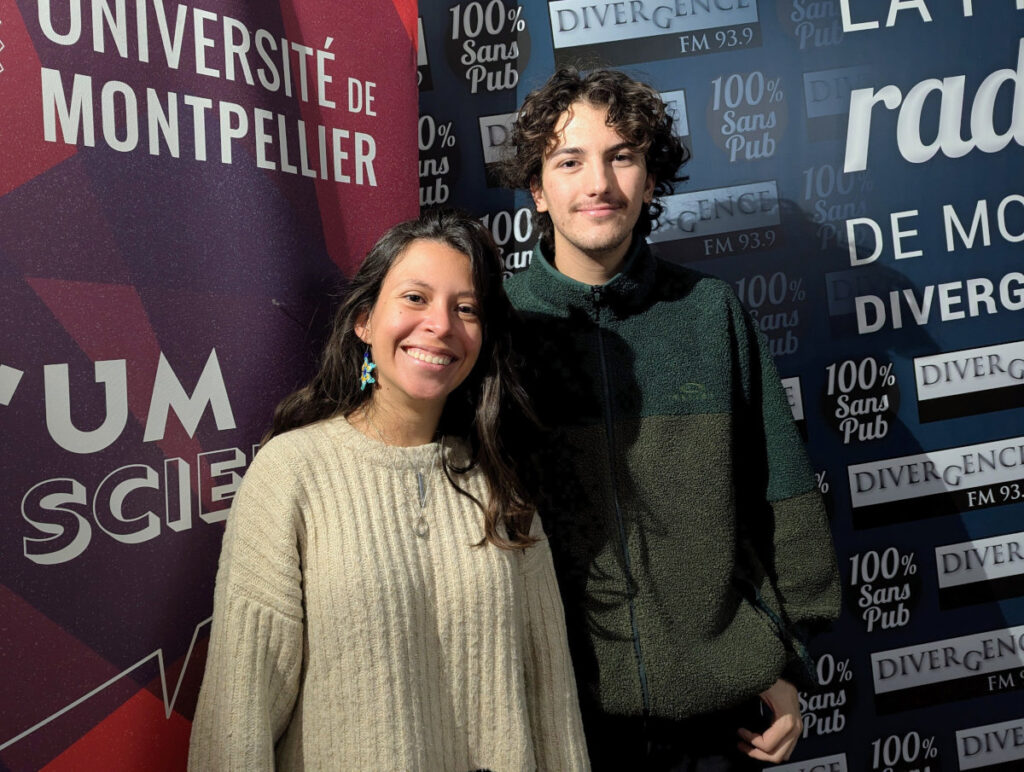Science at UM [S04-ep11]: Exotic spa guests in Juvignac
This week on A l’UM la science, Andrea Reyes Camargo and Ilhan Ben Halima, master's students in ecosystem evolution biology, talk to us about guppies and cherry shrimp found in the thermal baths of Juvignac. The report takes you to the quarantine insect platform. The program is broadcast every Wednesday on Divergence FM 93.9.

This is a well-known walk for Montpellier residents. The Juvignac thermal park, just a few kilometers from the city center, stretches between the banks of the Mosson River on one side and the Juvignac golf course on the other. In the 19th century, a thermal spa was built here to take advantage of the benefits of the Fontcaude spring, which produces water at a temperature of between 21 and 25°C. In 1812, the Montpellier Medical Society confirmed its virtues for people suffering from skin diseases, sciatica, and rheumatism. On June 30, 1846, a ministerial decree classified the Fontcaude spring as acidic thermal water, in other words, water rich in carbonic acid. The thermal baths opened the following year, but after only ten years of operation, their owner turned his attention to another liquid: wine.
It was not until March 1999 that a new decree from the Ministry of Employment and Solidarity authorized the town of Juvignac to make Fontcaude water available to its residents. In 2009, a new balneotherapy complex was created to replace the thermal baths. Unfortunately, the establishment was unable to withstand the health crisis of 2020 and closed its doors again in 2021. However, the waters of the Juvignac thermal baths continue to attract interest, particularly from students at the Universities of Montpellier and Toulouse, who have been studying a body of water in the park. There they found two tourists from faraway lands who seem to appreciate the temperature of Fontcaude so much that they have settled there, probably for good. Their names: Poecilia reticulata and Neocaridina davidi. While the two creatures are a delight to the eye, it is not certain that they are a delight to the local ecosystem.
Andrea Reyes Camargo and Ilhan Ben Halima are master's students in biology, specializing in ecosystem evolution and ecosystems, and have just published the article "Evidence of an established population of Poecilia reticulata and Neocaridina davidi in metropolitan France"in the journal Cybium.
In the second part of the program, we remain in the realm of creatures, but terrestrial ones this time. We invite you to visit PIQ, the quarantine insect platform on the Triolet campus, with Magali Eychenne from the Diversity, Genomes, and Microorganism-Insect Interactions Laboratory.
At UM Science, you have the program, so let's get started!
Co-production: Divergence FM / University of Montpellier
Host: Lucie Lecherbonnier
Interview: Lucie Lecherbonnier / Aline Périault
Reporting and editing: Lucie Lecherbonnier / Aline Périault
Production: Alice Rollet
Listen to the program “A l’UM la science” on Divergence FM 93.9
